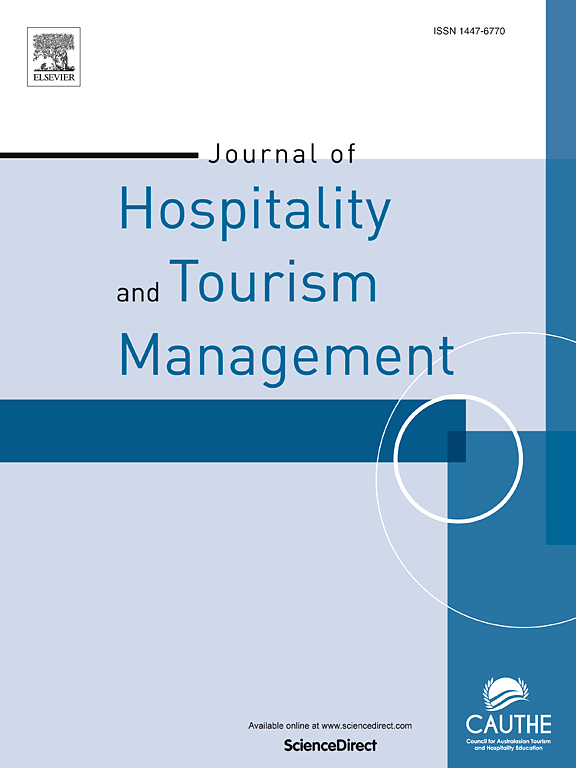Effect of message concreteness and self-relevance on willingness to engage in ESG goals: The mediating effect of temporal proximity focus
IF 7.8
1区 管理学
Q1 HOSPITALITY, LEISURE, SPORT & TOURISM
引用次数: 0
Abstract
ESG evaluates a company's performance beyond financial indicators to assess its commitment to sustainable management. However, adopting ESG practices directly and indirectly impacts customers, making it vital for companies to intentionally engage them in achieving ESG goals. At the same time, ESG activities are oriented towards future outcomes, requiring a readiness to tolerate present discomforts for long-term benefits. Hence, customers' commitment is necessary even amidst uncertain immediate results. Despite these challenges, there have been limited efforts to explore strategies to actively motivate customers to support and choose ESG initiatives. To fill this literature gap, this research investigated whether reconfiguring messages using construal-level theory could make future-oriented decisions feel psychologically closer to customers, thereby increasing their willingness to make desirable choices for the future. This research demonstrates that message concreteness affects customer engagement in ESG goals through perceived temporal proximity and that this effect is stronger if the message is perceived to be more personally relevant to customers. Based on these findings, this study provides insight into strategic communication design to foster customer engagement with ESG goals.
信息具体和自我关联对ESG目标参与意愿的影响:时间接近焦点的中介作用
ESG评估公司财务指标之外的业绩,以评估其对可持续管理的承诺。然而,采用ESG实践直接或间接地影响客户,因此公司有意让客户参与实现ESG目标至关重要。与此同时,ESG活动面向未来的结果,需要准备好忍受目前的不适,以获得长期利益。因此,即使在不确定的即时结果中,客户的承诺也是必要的。尽管存在这些挑战,但探索积极激励客户支持和选择ESG计划的策略的努力有限。为了填补这一文献空白,本研究调查了使用识解水平理论重新配置信息是否可以使面向未来的决策在心理上更接近客户,从而增加他们为未来做出理想选择的意愿。本研究表明,信息的具体性通过感知到的时间接近性影响ESG目标中的客户参与,如果信息被感知到与客户个人更相关,这种影响就会更强。基于这些发现,本研究为战略沟通设计提供了见解,以促进客户参与ESG目标。
本文章由计算机程序翻译,如有差异,请以英文原文为准。
求助全文
约1分钟内获得全文
求助全文
来源期刊
CiteScore
13.30
自引率
8.40%
发文量
177
审稿时长
45 days
期刊介绍:
Journal Name: Journal of Hospitality and Tourism Management
Affiliation: Official journal of CAUTHE (Council for Australasian Tourism and Hospitality Education Inc.)
Scope:
Broad range of topics including:
Tourism and travel management
Leisure and recreation studies
Emerging field of event management
Content:
Contains both theoretical and applied research papers
Encourages submission of results of collaborative research between academia and industry.

 求助内容:
求助内容: 应助结果提醒方式:
应助结果提醒方式:


